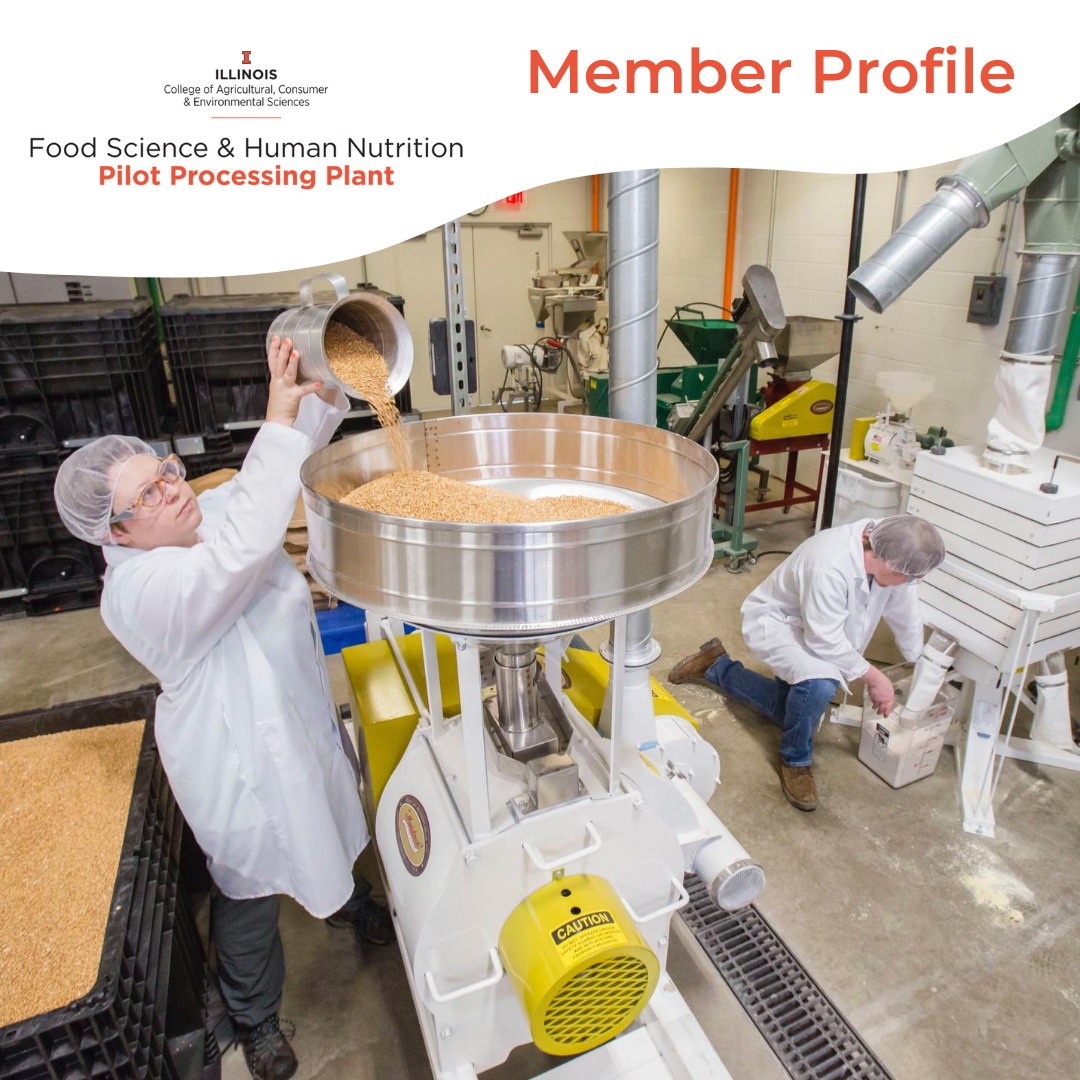
The University of Illinois’ (U of I) pilot-scale facilities—the Food Science & Human Nutrition Pilot Processing Plant and the Integrated Bioprocessing Research Lab (Pilot Plants)—were opened in 2018 after much construction and renovation. The goal of these facilities is to engage and provide resources to U of I students, researchers, the area community, and industry clients in food and bioprocessing. Full of dozens of specialized machines and pieces of equipment, the Pilot Plants are fun-factories for food testing and processing, equipped to perform a range of functions on fruits, vegetables, dairy products, and grains. Full equipment lists for the facilities can be viewed here and here.
The work done in the Pilot Plants and the efforts of its staff range widely. In one afternoon, the Pilot Plants’ Assistant Director Brian Jacobson may be working with a food scientist from an international agribusiness company, providing space, supplies, and expertise for them to conduct proprietary research, while simultaneously helping students process hundreds of pounds of tomatoes grown on U of I’s sustainable student farm, creating pizza sauce for the campus’ dining centers.
Specific to research and efforts related to the development of niche food-grade grain markets, the Pilot Plants are a critical AGC partner. Brian chairs AGC’s Variety Testing Working Group—coordinating farmers, processors, and researchers—and works with AGC staff to advance technical support for the regional grain value chain. With support from a USDA LFPP (Local Food Promotion Program) grant awarded in 2017, the Pilot Plants have conducted compositional testing on hundreds of grain samples grown in research stations and on Midwestern farms over the last several years including many varieties of barley, rye, and wheat. This data establishes important technical parameters that help researchers and bakers understand which grain varieties are likely to perform well for specific culinary functions, particularly artisan bread baking.

While COVID-19 has significantly disrupted typical business protocols for many of the Pilot Plants’ operations—the space has been primarily utilized for large-scale hand sanitizer production since April—some initiatives have forged ahead. In March, the Pilot Plants began installing a still and other grain fermentation equipment (shown above) to support craft distilling research. Over the next year, the Pilot Plants will be working with U of I grad, farmer, and distiller Will Glazik of Cow Creek Farm to test five varieties of heritage, open-pollinated corn for yield and flavor composition compared to yellow #2 dent corn most commonly used in whisky production. This NCR SARE-funded research will be instrumental in helping area farmers to make good planting decisions around corn varieties that are desirable to spirits producers.
To learn more about the Pilot Plants, check out the links below and read on to learn how they supported AGC’s bake test this spring. Last summer, Brian hosted AGC members for a tour of the Pilot Plants, which you can read about here.
—Alyssa Hartman, AGC Executive Director |
